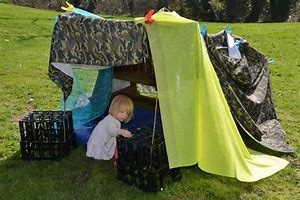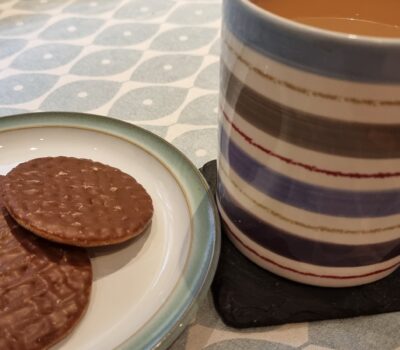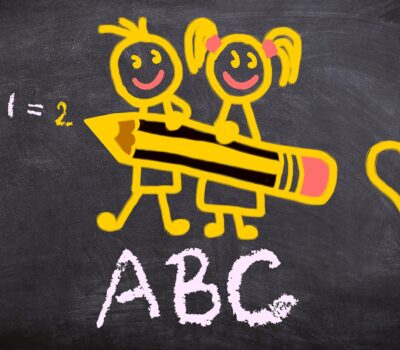


Our team sorts through all blog submissions to place them in the categories they fit the most - meaning it's never been simpler to gain advice and new knowledge for topics most important for you. This is why we have created this straight-forward guide to help you navigate our system.


And there you have it! Now your collection of blogs are catered to your chosen topics and are ready for you to explore. Plus, if you frequently return to the same categories you can bookmark your current URL and we will save your choices on return. Happy Reading!
I’ve just picked up a post on LinkedIn (here) that labelled the the above sheet as “Developing reflective learners”. Really???
To save your eyesight, here are the two student comments from the bottom of the sheet:
I think that I did well on talking about the formation of ox-bow lakes and identifying river processes. However, I didn’t do well on the formation of waterfalls and advantages and disadvantages of channel straightening.
I need to use PDL structures when I am answering the questions and highlight words from the questions to get a better understanding.
Now I don’t know about you, but to me these scream “comment bank”. Perhaps not a formal bank, but the student clearly has a formula in her head for what will keep the teacher happy. It has everything to do with mollification and nothing to do with grasp of, or passion for, the subject. These comments are utterly inauthentic and will not produce real learning above the level of rôte.
One should not criticise without offering a constructive alternative. Here is mine. To get authentic writing, provide an authentic frame. I asked students write feedback to short-text answers written by their peers, but anonymised. Here is an example:
Well this is obviously the incorrect answer, because if this was the correct answer we would all be dying or dead by now because radiation can kill ! So to help you with this maybe you should think about this a bit more and maybe look for things that happen and where about it occurs, such as in the air, under water etc., then compare them.
Not formulaic, I think you would agree.
Then I went one step further. I asked students to vote on the most useful feedback they had received, and then explain to the feedback writer why it was useful.
This answer is better because it is more detailed and a lot easier to follow, also it actually tells the person why he is wrong but the person doesn’t tell him what the answer is. Also the explanation is supportive and easy to follow so the person trying to follow this explanation so then they can work out what the answer could actually be.
This exercise became the basis of our Peer Feedback feature (logged here if you are a Yacapaca member) and is also used in our CPD modules.
Perhaps ‘reflection’ is an apt metaphor for that assessment feedback sheet. Contrast a mirror that reflects your image unmodified with an artist who must interpret and understand what he sees before he can draw it. The mirror may reflect accurately, but it does not learn.
If you want your feedback exercise to result in worthwhile learning, you must engage your students’ minds. One great way to gain evidence that they are engaged is to ask yourself if their writing is authentic. If you see your own stock phrases being repeated back to you, then sorry, but you have failed.
Source: https://blog.yacapaca.com/2017/10/01/if-this-is-reflective-learning-then-we-should-throw-away-the-mirror/#more-4898

The author

Read more

Read more

Read more

Read more

Read more

Read more

Read more

Read more


Are you looking for solutions? Let us help fund them! Nexus Education is a community of over 11,000 schools that come together to share best practise, ideas and CPD via online channels and free to attend events. Nexus also offers funding to all school groups in the UK via nexus-education.com


Established in 2011, One Education is a company at the heart of the education world, supporting over 600 schools and academies. Our unique appeal as a provider is in the breadth and synergy of the services we offer, supporting school leaders, teachers and support staff to achieve the best possible outcomes for their pupils and staff.

School Space is a social enterprise that has empowered schools for over 12 years through their profitable and hassle-free lettings services. So far, they’ve generated over £5 million in revenue for education, helping to connect over 200 schools with their local communities.


Unify is an online sales and marketing tool that allows users to create tailored personalised documents in moments.


There’s nothing special about the energy we sell. In fact, it’s exactly the same energy as all our competitors provide. But there is something special about the way we do it. Where others complicate the process, we simplify it. Where others confuse customers with hidden terms, we’re an open book. And where others do all they can to make as much money from their customers as possible, we do all we can to make as little. Everything we do, we do it differently. Our customers are a privilege. One we’ll never take advantage of.


Securus provide market-leading monitoring solutions to safeguard students on ALL devices both online and offline. We also offer a full monitoring service, where we carry out the monitoring on behalf of the school, freeing up valuable staff resources. From the smallest school to large MAT groups, Securus offers safeguarding protection for all!


Bodet Time offers dedicated solutions to education through lockdown alerts, class change systems, PA and synchronised clock systems. Improving time efficiency of the working and school day; ensuring safety through lockdown alerts; increasing communication with customised broadcast alerts.


Robotical makes Marty the Robot - a walking, dancing coding robot that makes programming fun and engaging for learners as young as 5. Our robots come with a full Learning Platform that has complete teaching resources, to make lesson planning a breeze.
